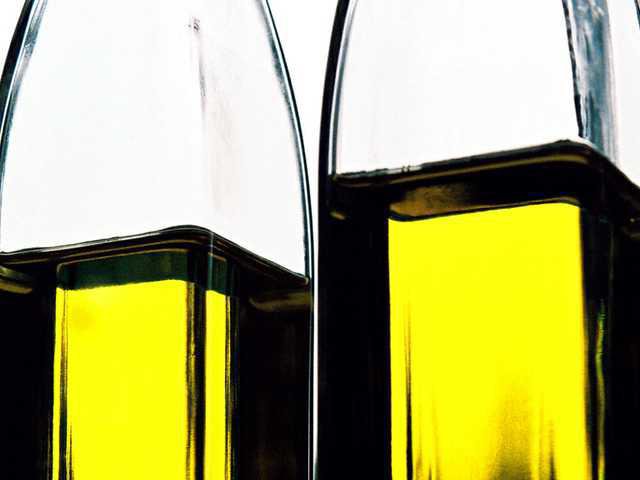Infusing your own olive oil with aromatic, flavorful herbs can add a boost of flavor to your salads, dressings or vegetable dishes.
Patricia Kyritsi Howell, the director of BotanoLogos School for Herbal Studies in Mountain City, said to make sure your first step is finding fresh herbs.
“Take a fresh herb — dried doesn’t work so well with oil extractions — and chop or bruise the herb,” Howell said. “You see people put it in a bottle and let it sit somewhere, but it really needs heat in order to extract the oils from the plant into the vegetable oil. So usually I do it in a casserole dish in the oven.”
The oil and herbs need to bake, covered, in the oven at 250 F for two to three hours.
“The main thing is, you need to really bruise them or chop them because you want to break open the cell walls of the plant because that’s where the essential oils are,” said Howell, who added that the ratio is one part herbs to four parts oil.
Any aromatic, fresh herb is perfect for infusing oil; try basil, ginger, thyme, sage, rosemary or garlic.
“You can also do a nice peppery oil with some nice hot peppers and really chop them up,” Howell said. “It’s really good to drizzle on vegetables and things like that if you do the method I am talking about, because the flavor really comes through.
“I like to do mine with single herbs and then I can control how I use them to get specific flavors.”
Steve Cratty, owner of Plant City Bonsai and organic herb nursery in North Hall, added that fresh herbs take your dishes to the next culinary level.
“It’s like night and day difference as far as the flavor,” he said. “Anything fresh is better; there’s nothing better than fresh tomatoes, with oil and vinegar and fresh basil. It makes the most delicious dish in the world.”
The traditional Italian dish also can also be made with fresh sliced mozzarella cheese and layered with the tomatoes. Infused oil also could be drizzled over the tomatoes and cheese.
For Howell the only oil to use for the infusion process is olive oil but other oils can be used.
“I always use olive oil but that’s because I’m Greek and I don’t believe in any other oil,” she said. “People can use canola oil and when you put some of these oils in the refrigerator, especially olive oil, it will become solid and you have to let it come to room temperature or put it in some hot water for a few minutes to get it to loosen up.”
But before you go dropping a whole rosemary sprig into your finished infused oil, resist the urge.
It may look appealing, but it will actually shorten the life of your oil.
“Technically you should keep it in the refrigerator if you reintroduce a plant matter to it,” she said. “That introduces a fair amount of bacteria, so the shelf life of it sitting on the counter — in Georgia in warm weather — could be days” before something more serious, like botulism, erupts in the oil.
With spring finally in full bloom, Cratty said it’s a good time to start putting fresh herbs in the ground, so infused oils are just steps from your kitchen’s door.
“Right now is a great time to begin your own (herb garden),” he said. “We will basically carry all the aromatic herbs ... we will be carrying the lavenders, at least three lavenders, and they are both aromatic and beautiful in bloom.”

